Speculative Stories, The Eclipse, And Other Rare Space Phenomena
Last week here in North America we had the opportunity to observe a rare phenomenon in space—a total eclipse of the sun, at least in some places. In fact, in portions of approximately ten states. The solar eclipse event occurs when the moon passes between the earth and the sun and as a result, casts its shadow on the earth.
What I find interesting is that this kind of unusual space event does not find its way into more stories, either science fiction or fantasy. Or, sure, Star Trek and its various iterations had plenty of worm holes and nebula and star clusters and quantum singularities. I mean, their mission was to explore strange new worlds and to seek our new life, so space needed to have interesting things and places for them to explore. The rare space phenomena were woven into the fabric of the stores, and consequently “rare” wasn’t so very rare.
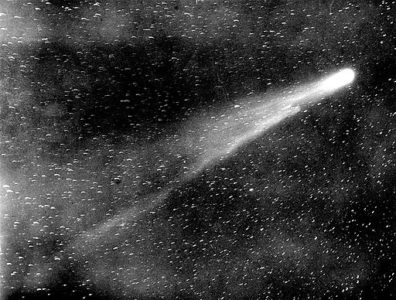 But what about other stories, not dependent upon the odd or occasional space event as part of the setting and/or the conflict? How many stories capitalize on the appearance of a Halley’s Comet, for instance? Or something as “scientifically impossible” as the sun standing still for a day?
But what about other stories, not dependent upon the odd or occasional space event as part of the setting and/or the conflict? How many stories capitalize on the appearance of a Halley’s Comet, for instance? Or something as “scientifically impossible” as the sun standing still for a day?
Or sure, there are the end-of-the-earth stories that have a comet colliding with earth, but I’m thinking about fantasy worlds that have some space phenomenon as part of the setting or a significant plot point.
I wonder if their rarity might be because such events would seem to take the reader beyond the realm of believability and smack more of the dreaded deus ex machina—an unexpected power or event seen as a contrived plot point.
Of course a skilled writer could properly foreshadow such an event, but still these kinds of natural and powerful events are out of the control of the characters in the story, and therefore may not contribute to the struggle and the overcoming which the protagonist needs to be a part of.
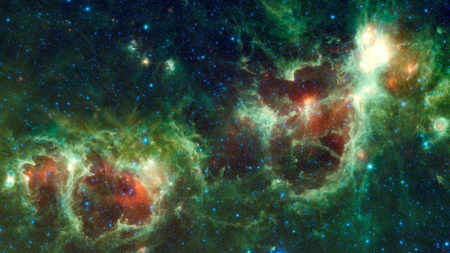 But other aspects of nature have long served as obstacles to a hero succeeding in his quest. So why not sudden darkness? Or a meteor shower? Or sun flares? Or the “Northern Lights”? Again, I’m aware that science fiction might be doing more of this than I’m aware of, but I am thinking about fantasy worlds, places that people create which seem strangely void of any unusual space activity.
But other aspects of nature have long served as obstacles to a hero succeeding in his quest. So why not sudden darkness? Or a meteor shower? Or sun flares? Or the “Northern Lights”? Again, I’m aware that science fiction might be doing more of this than I’m aware of, but I am thinking about fantasy worlds, places that people create which seem strangely void of any unusual space activity.
Sure, there are stories set on worlds that have two moons, but is there ever an eclipse of one? How does that effect the world? The people and animals in the world?
Because here in our world, reports came in that the total solar eclipse last week had some odd effects. Not unexpected, but sill, the event did not happen in a vacuum. And I’m thinking that fantasy worlds also ought not exist in a vacuum in which space has no oddities or occasional happenings.
But perhaps there are more stories out there that use space and I’m simply not aware of them. Do you have any in mind that I’m overlooking? Have you written a story that uses an event in space as something critical to the story? How do your characters understand space phenomena—as something that is the natural part of the world or as something God orchestrated to enhance or foil the hero in his quest? Should space happening become a greater part of stories, even fantasy stories?


































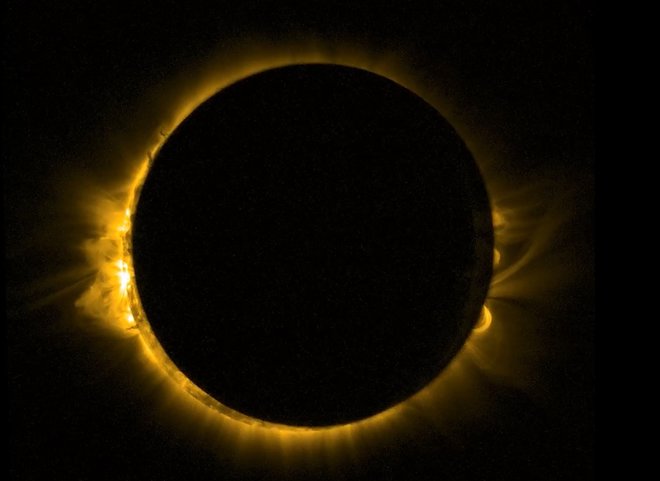

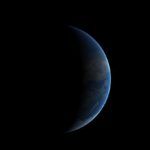


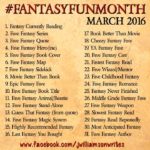


I can think of a classic Isaac Asimov story (sorry, can’t remember the title…uhmm, Nightfall?) where a one-in-thousands of years total eclipse destroys the civilization. The people had wondered why their archeologists found records of several previous civilizations destroyed by fire. The planet is in a particularly star rich area where they never see dark skies. *Then* comes this TOTAL eclipse which terrifies everyone. Think this one fits your description??
Absolutely. Now that’s making the most of space events! I do wonder, though, why fantasy doesn’t capitalize on the same. Seems like it could be great as a plot point. Instead of prophecies, why not messages in the stars? Seems there could be a creative use for these in fantasy. Thanks for this example, Kathleen.
Becky
I can only think of two examples. One is another Asimov story, which I haven’t actually read myself (yet), but I’ve both read and had recounted to me a particularly incisive review at the time. According to that critic (though I paraphrase from memory), Asimov’s style (tone) is so pompous that it leads the reader to expect the heavens to be rent apart, galaxies to go off course, etc. … but what actually happens at the “climax” is that a single star goes nova, with one person left on the planet orbiting it at the time.
The other, more pleasant, example is, of course, Prince Caspian, in which there is a close conjunction that serves several purposes: giving Doctor Cornelius and Caspian an excuse to talk privately, foreshadowing the return of the Pevensies and of Aslan (though the reader by that point already knows the Pevensies have returned, which makes this far more satisfying for me as a reader than prophecies or other astronomical or symbolic foreshadowing usually are in fiction), showing Doctor Cornelius to be a man (dwarf) of learning, giving an astronomical event for Glenstorm to refer to when they meet him, and helping to build the sense of numinous wonder that fills the whole series.
Oh, excellent examples, Jonathan. I’d forgotten about Prince Caspian. And as I think about it, I believe Dawn Treader also has stellar events, in the sense that the world of Narnia had an end, that Reepicheep was sailing into an enlarged sun. I guess those are the kinds of things I’m thinking of—they don’t follow our “natural” world. But they could, like the super nova in the Asimov story. It seems to me that this is an area that we writers could glean for gold if we chose to, because the heavens are largely ignored. But I thought maybe there were many more and I simply hadn’t read them.
Becky
All of Anne McCaffrey’s Pern novels were predicated upon an interesting planetary phenomenon. Of course, the Pern stories are still more SF than Fantasy.
I think the difficulty with using celestial phenomena or events in a Fantasy story is that Fantasy is by definition NON-scientific — the world-building as to how a Fantasy world functions usually has more to do with powers that have nothing to do with a scientific mindset. Not that a blending of Fantasy with a “scientific” astronomical event CAN’T work (the Narnia example above is perfect example); just that they tend to be a bit incongruous.
The Scarlet Letter is not really fantasy or science fiction. It’s historical Gothic with a few horror elements. But a meteor streaking across the night sky looks like a red capital A. Other townsfolk think it stands for “Angel” because a pious, old man died that evening. Insomniac Dimmesdale–eaten up by guilt–sees it as the first letter in “Adulterer.”
In A Connecticut Yankee in King Arthur’s Court, Hank uses a solar eclipse he knows about to convince the people of the dark ages not to execute him but make him nobility if he agrees to restore the sun. There’s also In the Days of the Comet by science fiction novelist H.G. Wells.